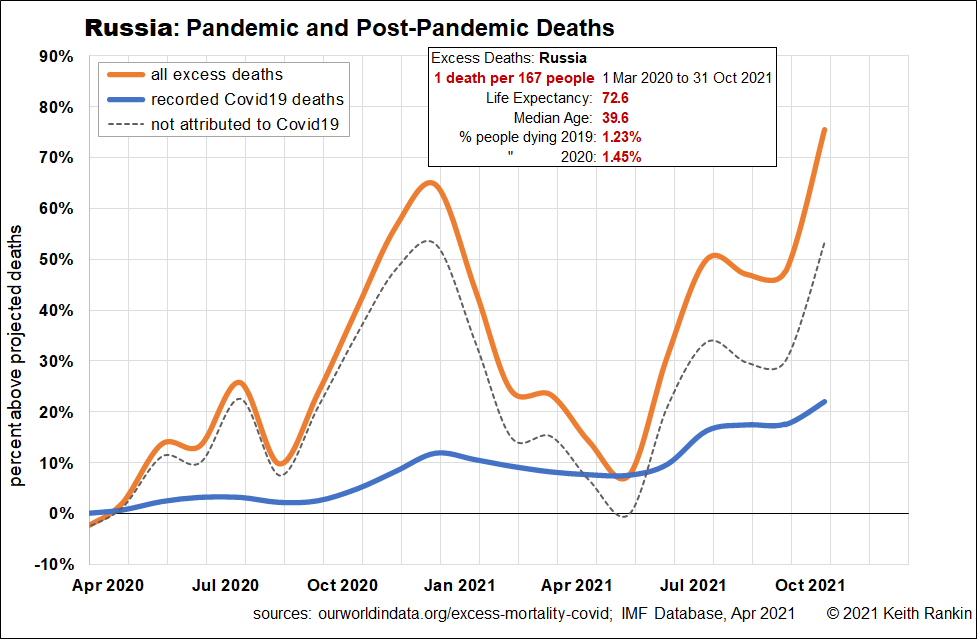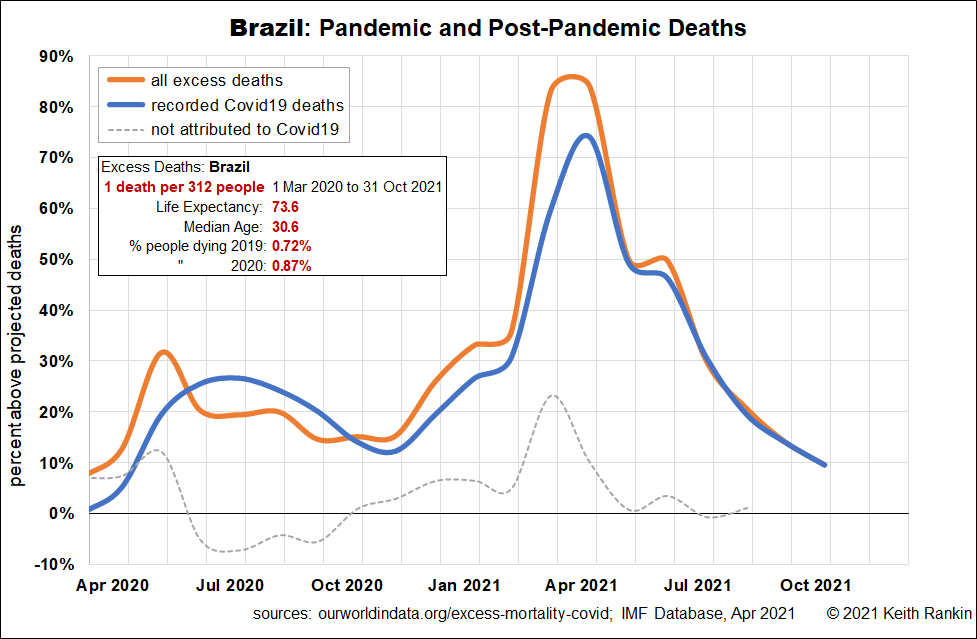Analysis by Keith Rankin.

To be fair to Russia, it is one of the quickest in the world to release its total death data. It is less good about reporting deaths as attributable to Covid19. (See Russia: The nation with half a million secret Covid-19 deaths, NZ Herald, 8 Nov 2021.)
Based on the data shown above, one in 167 Russians have died from Covid19 in the 20 months from March 2020 to October 2021. (‘From Covid19’ includes all excess deaths; all people whose deaths would not have happened had there been no pandemic. This is net of the people whose did not die as a result of mandatory or voluntary pandemic public health restrictions.) While the data is to some extent an estimate; it is based on projected deaths had there been no pandemic, which is a statistic with a low margin of error.
875,000 Russians, out of a population of 146 million, have died from Covid19. That is the greatest number for any country except (probably) India (for whom there is no proper data for ‘total deaths’).
Re deaths per capita, Russia has overtaken Peru, and is about the same as Bulgaria. It is possible that Belarus or Armenia – both former Soviet Union republics – have more deaths from covid per capita; while their recent data is not available, estimates point to a similar proportion as Russia.
The region around Russia’s southwestern border is now Covid Central. There will be many more deaths yet in this part of the world.
One in 167 – or 0.6 percent – is equivalent to 30,000 deaths in New Zealand, and is the same proportion as mortality in New Zealand in the Black Flu pandemic of 1918.

For comparison, I have included the same chart for Brazil, which has had much more publicity. Brazil, with a younger population has had one death per 312 people. Brazil is typical of Latin America overall, though did not have the early deaths spikes that occurred in Peru, Ecuador and Bolivia.
Unlike Russia, Brazil seems to be over its worst for now, and has much higher vaccination rates than Russia. Nevertheless, and with waning immunity, Brazil looks vulnerable in the second quarter of 2022.
Keith Rankin (keith at rankin dot nz), trained as an economic historian, is a retired lecturer in Economics and Statistics. He lives in Auckland, New Zealand.




